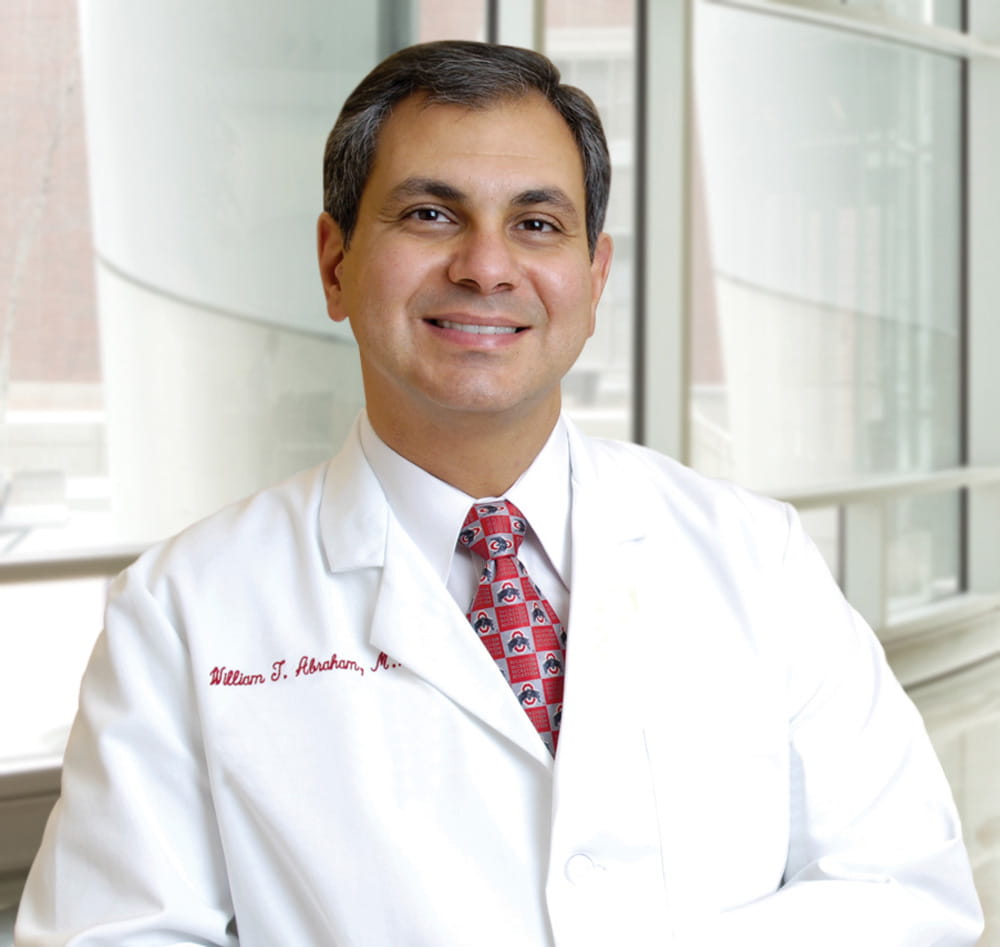September 21, 2011
 COLUMBUS, Ohio – Patients with moderate to severe heart failure, who were enrolled in a feasibility study of a new device which resembles a blood pressure cuff and is wrapped around a patient’s ascending aorta to improve cardiac performance, saw improvements in a number of indicators and researchers believe those results warrant a larger pivotal trial.
COLUMBUS, Ohio – Patients with moderate to severe heart failure, who were enrolled in a feasibility study of a new device which resembles a blood pressure cuff and is wrapped around a patient’s ascending aorta to improve cardiac performance, saw improvements in a number of indicators and researchers believe those results warrant a larger pivotal trial.
“The trial results to date show positive trends of efficacy with a strong safety profile as compared to later stage mechanical support devices,” says Dr. William T. Abraham, director of the division of cardiovascular medicine at the Ohio State University Medical Center, and national co-lead principal investigator. “We believe further investigation is needed as hundreds of thousands of heart failure patients in this country remain substantially symptomatic despite currently available treatments.”
The trial results will be presented in detail during the Transcatheter Cardiovascular Therapeutics Meeting on Nov. 8.
The multi-center trial was led in part by Ohio State’s Medical Center, where a West Virginia man and a central Ohio man became the first in the United States to receive the device in 2009.
Twenty patients, eight women and 12 men with an average age of 56, were enrolled in the North American trial. Eighteen patients were classified with New York Heart Association (NYHA) Class III heart failure and two were Class IV, the most severe forms of heart failure. For these patients, daily activities such as walking across the room, moderate exercise or climbing stairs can be a challenge. All patients had cardiac resynchronization therapy, implantable cardiac defibrillators or combination devices implanted. Three patients were successfully bridged to transplant with one patient being supported for 22 months, the longest of any patient participating in the trial.
All but one patient either improved or maintained NYHA heart failure classification. Two patients were disconnected permanently, one after eleven months on therapy due to the absence of heart failure symptoms. Overall, other improvements were realized as measured by quality of life scores, six-minute walk times, ejection fractions, or the heart’s pumping ability, and reductions in medications. One patient death from an aortic disruption was reported as a result of a re-sternotomy surgery to treat a procedure related infection. No neurologic events or heart attacks were reported, while six superficial exit site infections were successfully treated with antibiotics. There was one instance of post operative, non-device related bleeding.
Once implanted, the system uses an ECG sensing wire and rapidly inflates and deflates to assist the pumping action of the heart. While implanted minimally invasively or during an open chest procedure, an advantage of this therapy is that it avoids blood contact, which limits complications and allows for faster recovery time. Patients had a median length of hospital stay of eight days.
When the heart is filling with blood, the cuff inflates to push blood out of the aorta to the rest of the body and to the heart muscle itself. Just before the heart pumps blood out, the device deflates to open up the aorta, reducing aortic pressure and the heart’s workload.
According to Abraham, heart failure occurs when a patient’s heart is not pumping blood efficiently, most often due to a weak heart muscle damaged by a prior heart attack or some other cause. More than five million U.S. adults suffer from heart failure, with an estimated 500,000 new cases each year.
OSU Medical Center, a leading center for heart failure and interventional research, was one of seven centers participating, and the only one in Ohio, in the FDA-approved safety and feasibility study.
The device, the C-Pulse Heart Assist System, has FDA Investigational Device Exemption (IDE) approval for investigational use only and was developed by Sunshine Heart, Inc., Eden Prairie, MN. The study was funded by Sunshine Heart, Inc. Abraham is a paid consultant for the company.
